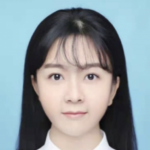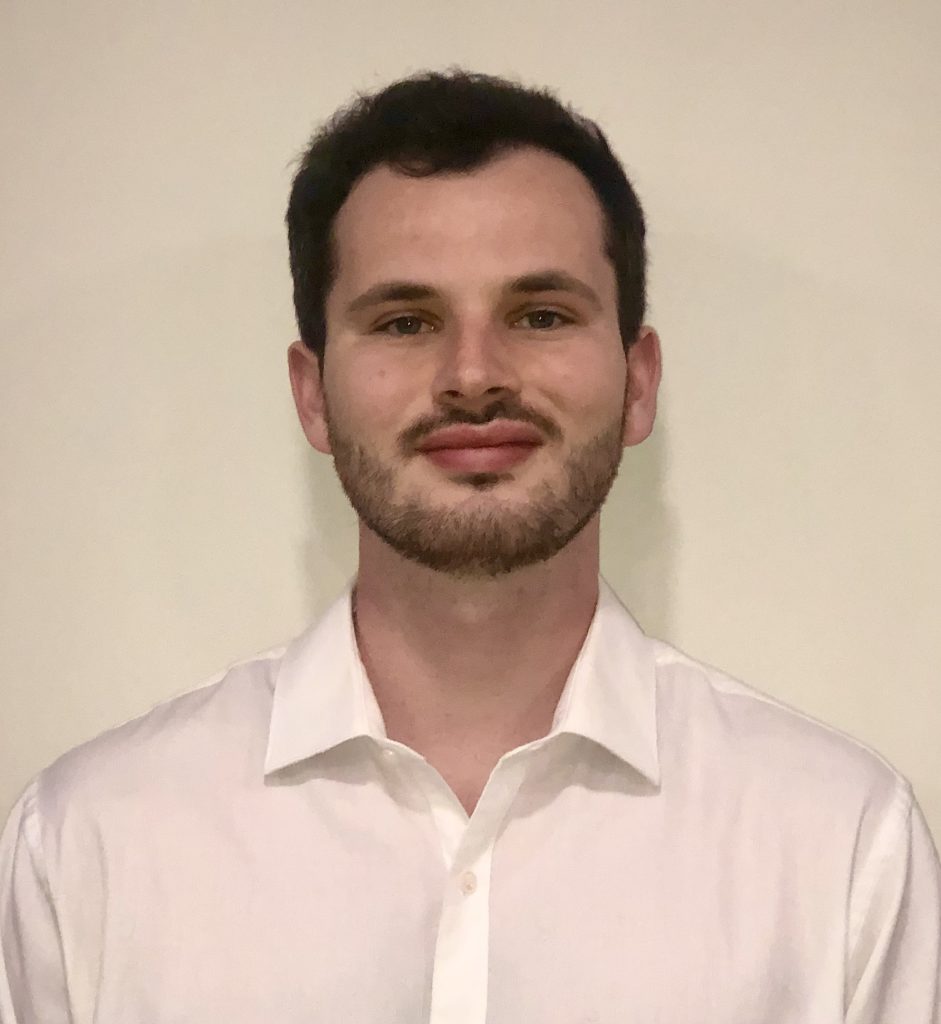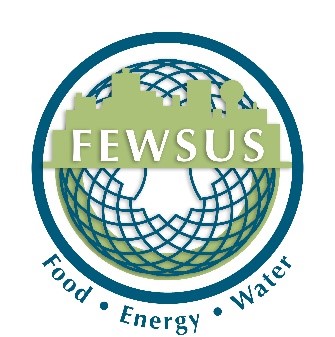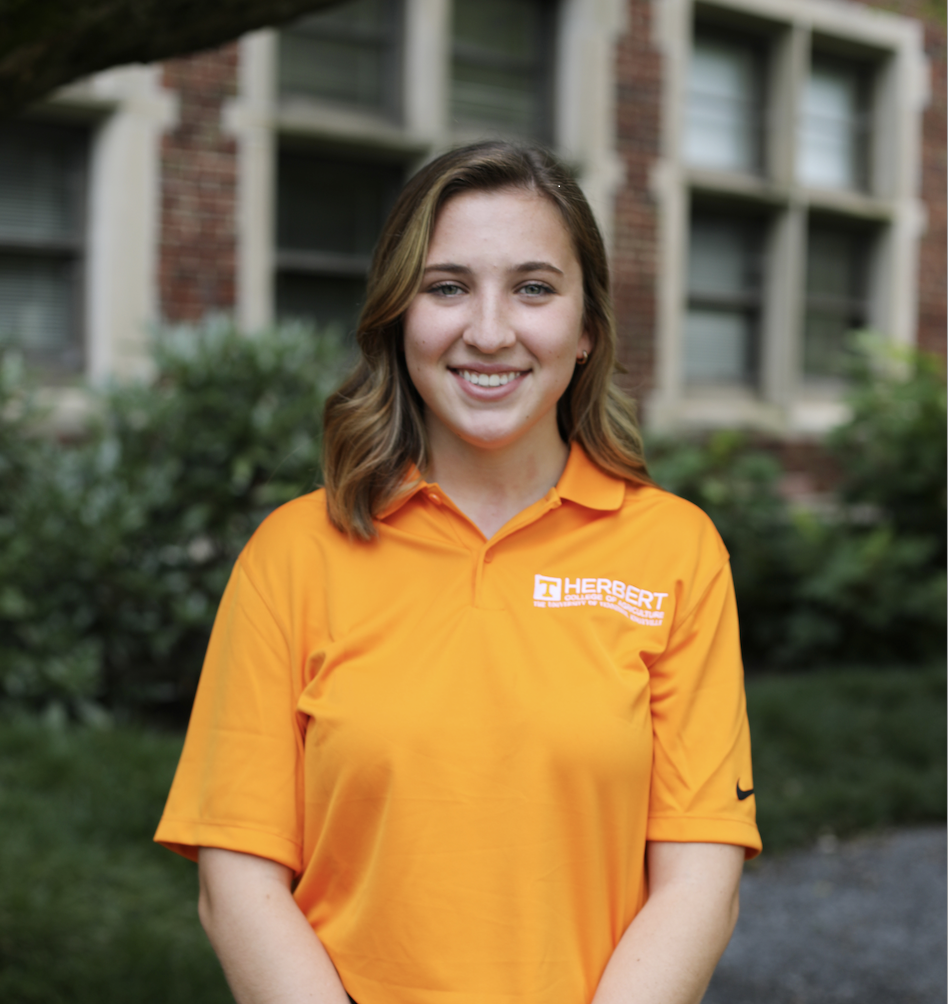Wednesday, May 11, 2022
Theme 1: Responsible Consumption and Production | Theme 2: Zero Hunger
Theme 3: Affordable Energy and Clean Energy

Alivia Nytko
1st International Student Workshop- Best presentation award Winner 2021
Institution: University of Tennessee, Ecology and Evolutionary Biology / International Agriculture and Sustainability
Faculty Advisor: Jie Zhuang
Country: USA
Title: “NSF research opportunities for undergraduate and graduate students“
Abstract: This presentation will focus on my experiences as an NSF funded student. The Research Experiences for Undergraduates (REU) program supports active research participation by undergraduate students in any of the areas of research funded by the National Science Foundation. REU projects involve students in meaningful ways in ongoing research programs or in research projects specifically designed for the REU program. The NSF GRFP recognizes and supports outstanding graduate students in NSF-supported STEM disciplines who are pursuing research-based master’s and doctoral degrees at accredited US institutions
Biography: My research seeks to understand how coupled plant–atmosphere and plant–soil feedbacks vary along aridity gradients. Through the integration of above- and below-ground feedback loops, it will elucidate how environmental gradients can affect the ecology and evolution of ecosystems and shape the interactions that enable species to persist under rapid anthropogenic climate change.
Email: anytko@vols.utk.edu


Ye Li
Institution :University of Tennessee, Biosystems Engineering and Soil Sciences
Faculty Advisor: Terry C. Hazen
Country: USA
Title: “Stressing groceries donating “food waste” to food banks achieving zero food”
Abstract: Food waste is a concern recently. Food bank is a good way to save food, especially food waste from groceries. Stressing groceries donating food waste to the food bank needs government to make laws or policies. Apart from getting an advantage from tax, groceries also save money on the disposal of food waste. Extending the distribution days, advertising the food in popular ways, and letting the client make their preference of food are some good ways to a minimum the food waste in the food bank. Food banks are a more effective response not only to the problems of hunger and food insecurity but for saving water and energy.
Biography: Ye Li is a third year Ph.D. student in Civil and Environmental Engineering, pursuing a degree in Environmental Engineering at the University of Tennessee. She currently works on raw wastewater surveillance for SARS-CoV-2 with Dr. Hazen. She received her B.S. degree from Central South University of Forestry and Technology in China. She earned M.S. degrees from University of Copenhagen in Denmark and University of Chinese Academy of Sciences in China, with a focus on the effects of Mn2+ on removal micropollutants from wastewater effluent using biofilm sand column, and effects of manganese oxide on adsorption and transport of PPCPs in porous media. Before she come to USA, she has received 7 academic awards at the university level and higher. She has published one scientific paper on Chinese Journal of Ecology in 2019.
Email: lye7@vols.utk.edu

Yinghui Chow
Institution : College of Land and Environment, Shenyang Agricultural University
Faculty Advisor: Bingxue Li
Country: China
Title: ““Long-time N based fertilizing changed community composition of N fixers””
Abstract: Diazotrophic microorganisms play an important role in biological N fixation (BNF), which is a significant way to transport atmosphere nitrogen into available anionic form in soil. The nifH gene encodes the conserved subunit of the dinitrogenase iron protein in diazotrophs, which used to investigate their abundance and diversity from different environmental conditions as a common molecular marker. In this study, we took soil samples from long-time (29yrs) fertilizing sites, investigated the abundance, diversity, and community composition of diazotrophs. Turned out that nearly 30 year`s N-based fertilizing changed the diazotrophic structure and the relationship among the species.
Biography: doctoral candidate, interested in soil microbiology, diazotrophic community, pedal ecology.
Email: polarchow37@stu.syau.edu.cn

Victor Beltrán
Institution : COLPOS Veracruz
Faculty Advisor: Dr. Diego Esteban Platas Rosado
Country: México
Title: “The impact of COVID-19 on the use of ICT for Food Procurement in Short Commercialization Circuits in Mexico”
Abstract: During the COVID-19 pandemic, obesity and related comorbidities such as hypertension and diabetes placed Mexico vulnerable. The causes of these diseases result from a dietary transition to the consumption of ultra-processed foods. The project seeks to analyze the adoption of digital tools for the acquisition and distribution of fresh, locally produced food and to evaluate the potential of implementing Short Commercialization Circuits (SCC) to make more nutritious and fresh food available to the population and boost small rural producers. Key Words: ICT, farmer’s markets, production, pandemic, Mexico.
Biography:
Email: victorhbeltrang@gmail.com


Zhijing Wu
Institution: College of Land and Environment, Shenyang Agricultural University
Faculty Advisor: Mingda Liu
Country: China
Title: “Let Chickens Eat Worms Again: To Push Forward Sustainable Urban-rural Coordinated Development”
Abstract: Climate change is a common global problem. ‘The Paris Agreement’ stipulates that the increase in global temperature should be controlled within 1.5°C-2°C. China is committed to achieving carbon peaks by 2030 and carbon neutrality by 2060. China is also the most populous developing country, therefore, how to integrate urban-rural development and achieve the dual-carbon goal is a serious challenge.Traditional treatment methods of burning or landfilling the solid wastes such as kitchen waste and livestock manure do not only waste resources and cause secondary pollution, but also lead to the fracture of material metabolism in urban and rural areas. We envisage that using scavengers to convert kitchen waste, livestock and poultry manure into organic fertilizer for farmland. This approach not only reduces carbon emissions during processing, but also promotes carbon sequestration in farmland ecosystems. At the same time, the reproduction of scavengers can be used as a substitute of livestock feeding, ultimately improving the value of the ecosystem services of the system. Accounting for the emission reduction and carbon sequestration of this pattern and selling it to carbon trading institutions, which not only realizes urban-rural transactions, but also improves the income of rural residents. This pattern of “urban emissions, rural absorption, urban-rural transactions, and coordinated development” will certainly plays an important role in the process of achieving rural revitalization and carbon neutrality in China, and will also contributes to the achievement of the goals of the United Nations SDG11 and SDG12.
Biography: Master’s degree in reading, Majoring in Environmental Engineering,Bachelor of Economics. Interested in LCA, Ecological Management, Regression Analysis, Economic Statistics.
Email: 15556965332@163.com

Huazheng Liu
Institution : Water Resources and Hydropower Engineering. College of Land and Environment, Shenyang Agricultural University
Faculty Advisor: Yan Feng Jia
CV: https://fewsus.utk.edu/wp-content/uploads/sites/177/2022/05/HuazhengLiu.pdf
Country: China
“Study on the structure and stability of typical black soil aggregates in Northeast China based on Le Bissonnais method “
Biography: Female doctoral candidate, research direction is the law of soil and water loss, and committed to combining theory with practice, taking soil and water conservation measures to prevent and control soil loss, determined to make modest contribution to the protection of one of the three major black soil regions in the world with my own knowledge.
Abstract: The black soil area in northeast China is an important grain production base in China, and soil erosion is serious. Soil aggregate stability has a profound influence on soil erosion process. The purpose of this study was to clarify the fragmentation characteristics of surface and bottom soil aggregates in sloping farmland under different damage mechanisms, and to evaluate the stability characteristics of aggregates under different damage mechanisms, so as to provide theoretical basis for the prevention and control of soil erosion in sloping farmland in rainy season. [Methods] The typical long straight sloping farmland in northeast Black soil region was selected as the study area. Samples were taken every 30 m along the longitudinal section of the slope length, with a sampling depth of 30 cm and a sampling length of 1020 m. The particle size distribution and stability parameters of soil aggregates were determined by Le Bissonnais (LB) method (including fast wetting (FW), slow wetting (SW) and runoff disturbance (WS) treatments. [Results] 1) Under the three treatments of LB method, FW treatment (rainstorm) had the largest damage to soil aggregate structure, SW treatment (light rain) had the least damage to soil aggregate structure, and WS treatment (disturbance) was in the middle. On the whole, the aggregate stability showed MWDSW>MWDWS>MWDFW. 2) Analysis of soil aggregates in the topsoil (0-10 cm) showed that SW treatment (light rain) caused the soil aggregates to break into aggregates of >0.2 mm. WS treatment (disturbance) caused the fragmentation of soil aggregates mainly concentrated in 2-0.2 mm grain size, indicating that the >2 mm grain size aggregates were mainly destroyed by raindrop splashing, which made them split into microaggregates. After FW treatment (rainstorm), the aggregates were broken in <1 mm size, which provided abundant loose aggregates for raindrop splash erosion and runoff erosion process, and became the main source of erosion materials in soil erosion process. 3) The aggregate fragmentation of surface layer (0-30 cm) was more sensitive to 0-10 cm soil layer after light rain. The aggregate fragmentation effect under rainstorm and irrigation was more obvious in 0-20 cm soil layer. The effects of raindrop splashing and runoff disturbance on aggregate fragmentation in 0-30 cm soil layer are similar. MWD0-10cm < MWD10-20cm < MWD20-30cm in different soil layers under the three failure mechanisms. 4) In the three treatments of LB method, 1 mm grain size was taken as the critical, and 1 mm grain size was used as the index to distinguish soil stability. Soil aggregate size >1 mm had a strong resistance to soil dissipation, clay expansion and mechanical oscillation. This result could characterize the factors affecting soil stability structure.
Email: huazhengliu0105@gmail.com

Mabood Farhadi
Institution: University of Tennessee, Biosystems Engineering and Soil Sciences
Faculty Advisor: Jie Zhuang
Country: Iran
Title: “Improving Food Security With Respect to its Nexus With Water and Energy in UAE”
Abstract: Limited cultivable land and water crises in the UAE result in food import dependency, which could greatly increase the risk of food insecurity due to physical unavailability during a crisis. A possible solution to improve food security in the UAE could be an increase in national food production by providing fresh water for the agricultural sector. The required freshwaters to expand local food production could be provided by optimizing the current agricultural system, reducing the residential water use, and desalinating seawater. In addition, the adoption of controlled environment agriculture could result in higher food production and higher water use efficiency.
Biography: Mabood Farhadi is a Ph.D. candidate in Biosystems engineering and soil science at the University of Tennessee, Knoxville. His research interest is mainly concerned with improving water use efficiency at the field level. He has worked on irrigation water management for different crops, e.g., forage corn, sunflower, and rice in Iran. He also worked on a soil amendment research project at the University of Alicante in Spain.
Email: mfarhadi@vols.utk.edu


Amanda Kramer
Institution : University of Tennessee, Biosystems Engineering and Soil Sciences
Faculty Advisor: Jie Zhuang
Country: USA
Title: “Affordable Energy during crises”
Abstract: The invasion by Russia of Ukraine focuses on regions rich in fossil fuels, indicating economic motivations. The economic and political ramifications of this conflict threaten global food security both directly through the disruption of trade of agricultural products such as wheat and sunflower oil, and indirectly through the availability of potassium and nitrogen fertilizers and the loss of labor due to civilian evacuations. The damage done and yet to come underscores the imminent need to replace fossil fuels with alternative and diverse energy sources to remove market demand for fossil fuels and reduce monetary motivations of potential future conflicts.
Biography: Masters student in Biosystems Engineering and Soil Sciences
Email: Akrame12@vols.utk.edu
Shuhua Xie

Institution : University of Tennessee, Biosystems Engineering and Soil Sciences
Faculty Advisor: Brian G. Leib
Country: USA
Title: “A green promotion in the urban cold chain”
Abstract: With the increase of the greenhouse effect and the decrease of fossil fuel resources, the cost and CO2 emission of conventional fuel vehicles in urban food-cold chain transportation have rapidly raise and electric vehicles are becoming a trend as a green and clean way. Electric vehicles have great possibilities for urban food-cold chain logistics in the future. At present, government, manufacturers, food-chain logistics companies, and private EV drivers can be combined into a system for decarbonizing the cold chain.
Biography: Shuhua Xie is 1st year Ph.D. candidate in Biosystems Engineering, University of Tennessee, Knoxville. He received his M.S. Degree from Northwest Agricultural & Forestry University and his M.S. Degree from China Agricultural University. He worked on lawn irrigation management at China Agricultural University. His research interest currently is mostly site-specific irrigation for soybean in humid areas.
Email: sxie6@vols.utk.edu

Aaron Desmond
Institution : University of Tennessee, Business Management
Faculty Advisor: Jie Zhuang
Country: USA
Title: “Energy accessibility and the middle class in Africa”
Abstract: Africa has 600 million people that live without electricity. The people that do, experience common outages. Africa also has a middle class between 18% and 30% which affects their economy and overall well-being. With decentralized energy sources, people would no longer have to rely on an unreliable sole source while it would also allow for a more progressive development of infrastructure in more rural areas. In a recent study it was found that Nigeria is suitable for such systems while others were not due to various factors. In conclusion, these systems show potential but are limited by policy and funding.
Biography: My name is Aaron Desmond and I am a Business Management major from Franklin Tennessee. After switching from Architecture in my sophomore year I was brought the opportunity to participate in this program and it has been a great way to broaden my perspective and I think it has been a great way for me to learn how to bring a sustainable mindset into a business environment.
Email: adesmon1@vols.utk.edu
Thursday, May 12, 2022
Theme 4: Clean Water and Sanitation | Theme 5: Sustainable Cities and Communities


Anderson St. Jean
Institution : University de Jeremie
Country: Haiti
Title: “Food Energy Water for disaster preparedness and recovery”
Abstract: Haiti has received massive foreign aid during country’s many political turmoil and environmental catastrophes. However, not enough focus was given to the relevance of food-energy-nexus nexus as a way to address disaster preparedness and recovery. This presentation will highlight FEW in the context of the 2019 earthquake where the southern peninsula was hit hard. This catastrophe claimed over 2,200 lives, and injuring more than 12,200 people; destroying homes, businesses, and public infrastructure. This is a case study of Jeremie, Haiti. How the town was affected by the disaster and the recommendations for the future to mitigate some risks.
Biography: I am from Jeremie, Haiti. I am a student at the Universite de Jeremie in Business Management.
Email: andersonstjean24@gmail.com

Richard Owusu Ansah
Institution: Shenyang Agricultural University
Faculty Advisor: Prof Li Bingxue
Country: Ghana
Title: “Characterization and comparison of bacterial communities in cadmium-contaminated soil“
Abstract: Characterization and comparison of bacterial and viral communities in cadmium contaminated soil Heavy metal contamination is a serious problem worldwide threatening soil environment and human health. Contamination with heavy metals such as cadmium (Cd) can decrease soil microbial species richness and substantially alter soil microbial species composition. Investigations of the microbial communities in Cd-contaminated soils are necessary to obtain data for soil bioremediation efforts. Here, the effects of long-term Cd pollution on soil microorganisms were investigated in different soil Cd concentrations using 16S rDNA sequence analysis. It was found that, in Cd-polluted soils, microbial communities were closely similar between the different soil concentrations. However, they differ in regards to relative species abundance. Species evenness was significantly different between the control and high Cd-polluted soils. Notably, the identification of the genus that were differently abundant among soils with different levels of Cd pollution will provide experimental guidance for further explorations of the effects of Cd on soil microbes in natural environments. It will also help to clarify how long-term heavy metal contamination affects the soil bacterial community.
Biography: Environmental engineering master student interested in waste management, soil and water quality management, environmental toxicology, environmental quality management
Email: richansah11@gmail.com

Xiaoyu Liu
Institution: Shenyang Agricultural University
Faculty Advisor: Peiyu Luo
Country: China
Title: “Adsorption of pollutants in aqueous phase by manure-based biochar“
Abstract: As the main component of agricultural waste, livestock and poultry manure contains a variety of pollutants, including heavy metal pathogens and antibiotics, which pose potential health hazards to plants and humans through the food chain. At present, composting and anaerobic digestion are the main methods to treat livestock and poultry manure, but these two methods cannot completely eliminate antibiotics and pathogens in livestock and poultry manure, and the bioavailability of heavy metals in the products after treatment is still high. The preparation of biochar from livestock manure can not only achieve the goal of manure reduction and harmlessness, reduce environmental pollution, but also attain the purpose of waste utilization and bring environmental and economic benefits. Manure-based biochar is widely used in the field of environmental remediation due to its unique physicochemical properties, low cost and environmental friendliness, which can be used to adsorb/immobilize pollutants in water and alleviate the serious harm caused by pollutants in wastewater to the ecological environment and human health. This report is about the removal of heavy metals, organic pollutants, antibiotics and nitrogen and phosphorus from wastewater by manure-based biochar.
Biography: In college, I have always been diligent and studious. Now I have passed Cet-4 and CET-6, and PASSED THE Ms Office test of Computer Level 2. The GPA of three semesters ranked first in the major; Awarded as “Merit student” in freshman year. At the same time, I keep a good interpersonal relationship with my classmates, and I am willing to help others and be kind to others. I serve as the commissary in charge of study in my class and the staff of the study Department in my college. I can solve problems for my classmates and actively play the role of the link between teachers and students. In addition, I also actively participated in some competitions, actively participated in and organized various activities carried out by the school, and achieved excellent results in social practice activities during the winter vacation of freshman year.
Email: 1315984684@qq.com

Tianchi Lin
Institution : Shenyang Agricultural University
Faculty Advisor: Qingyu Liu
Country: China
Title: “Solvent-free Synthesis of Magnetic Carbon-based Catalyst for Emerging Applications”
Abstract: In order to convert cellulose into platform compounds, an advanced recyclable biochar-based solid acid catalyst (O-HPW@MBC) was synthesised via a novel solvent-free ball milling protocol. The effects of O-HPW@MBC on the hydrolysis efficiency of cellulose and preparation conditions on the catalytic activity of O-HPW@MBC were also studied. The results showed that O-HPW@MBC-40% exhibited the yield of reducing sugar (58.2%) and the glucose selectivity (77.7%) at 160°C for 4h. The mechanism studies showed that the interactions between HPW and the carbonaceous supports were related to the surface chemistry of the catalysts. O-HPW@MBC shows superior recovery performance in practical application.
Biography: Female doctoral candidate, the research direction is the preparation of carbon-based catalysts and the high-value utilization of agricultural waste, and the current research focus is on the directional transformation of cellulosic biomass.
Email: 13942339021@163.com

Can Liu
Institution : Shenyang Agricultural University- School of Land and Environment
Faculty Advisor: Fengkui Qian
Country: United States of America
Title: “How to make urban water more environmentally friendly and ecological?”
Abstract: Nowadays, the main sources of daily water use are basically surface water and groundwater, which seem to be renewable resources. But there are many problems, such as surface water is facing pollution, water cut, and surrounding the river salinization is aggravating, and excessive extraction of groundwater, also make the city is facing the ground settlement, the ecological environment in the crucible of variation, so how to make the standardization of urban water, how to control water, let the whole city water system more ecological, Become the top priority of the smooth operation of the urban system.
Biography: My name is Liu Can, an undergraduate majoring in land Resource Management in College of Land and Environment of Shenyang Agricultural University. I have been fond of knowledge about geography since childhood. As a student majoring in land resource management, I have great interest in soil-related ecology and water resource utilization.
Email: 2719310283@qq.com


Duncan McCurry
Institution :University of Tennessee, Biosystems Engineering and Soil Sciences
Faculty Advisor: Jie Zhuang
Country: USA
Title: Creating a network of urban food sources to combat rising food insecurity in the United States
Abstract: Food insecurity is rising in the US as a result of the economic and supply chain ramifications associated with the Covid-19 pandemic. This trend is most significant among households with children, as well as minority populations. As a way of combatting rising food insecurity, the US should consider implementing and funding community gardens. These gardens provide many economic, social, and environmental benefits. By linking community gardens with local restaurants and food banks, waste can be kept within the urban metabolic cycle and reused. Therefore, this partnership framework can address food insecurity, urban waste production, and the vulnerability of marginalized communities.
Biography: Duncan McCurry is currently a student at University of Tennessee, Knoxville pursuing a master’s degree in environmental and soil sciences. His research interests include land use changes, urbanization, and sustainable development. Duncan joined the FEWSUS project after completing his bachelor’s degree in environmental science from UTK in 2019. In undergrad, he gained research experience working in a greenhouse study for the soil physics department exploring the impacts of biochar additions to corn plants. Additionally, he participated in competitions with the UTK soil judging team, traveling to Virginia Tech, Western Kentucky University, and California Polytechnic Institute for regional and national-level competitions.
By working with the FEWSUS project at UTK, Duncan hopes to gain a greater understanding of the complex dynamics of urban sustainability and ways that international transdisciplinary research can address modern development issues.
Email: dmccurr1@vols.utk.edu

Yuexi Yao
Institution : College of Land and Environment, Shenyang Agricultural University
Faculty Advisor: Li Bingxue
Country: China
Title: “Sustainable development — sponge city“
Abstract: With the acceleration of urbanization, sustainable development and rational utilization of resources have become hot topics. “Sponge city” is closely related to this concept, can greatly promote the sustainable development of urban water ecosystem, rainwater wastewater treatment and reuse. It is an innovative manifestation of promoting the development of low-carbon cities and the formation of smart cities.
Biography: Erhu chief, good at swimming, badminton and other sports, optimistic, interested in new energy, green city and love life freshman
Email: yaoyuexi20020901@163.com

Guido Bambini
1st International Student Workshop- Best presentation award Winner 2021
Institution: Civil Engineering – National University of Rosario
Faculty Advisor:
Country: Argentina
Title: “SDG 17: Strengthening alliances for urban sustainability: the case of the city of Rosario, Argentina
Abstract: The city of Rosario has undergone dramatic transformations in the last decades. Recently, the World Resources Institute Ross Centre ‘Prize for Cities’ competition awarded the municipality of Rosario, recognizing major progress in building climate resilience and equity through urban agriculture, transportation and ecosystems services. This presentation will highlight some partnerships and alliances enabling a path to urban sustainability in Rosario.
Biography: My name is Guido Bambini, I am a 23 years old Civil Engineer from the National University of Rosario. I am currently doing postgraduate studies in political economy at the Argentine political economy center. I work at the Rosario Mobility Institute where we focus on a paradigm shift that includes the promotion of public transport, the discouragement of the use of private motorized transport and the promotion of sustainable means of transport in the city. On the other hand, I have been involved since August 2020 in a program called “Programa Barrios” of the Sanitary Engineering Center of my College. Programa Barrios was thought as a permanent program of extension, research and training of young professionals, whose main objective is to contribute to the achievement of the sustainable development objectives from the improvement of water and sanitation services in poor neighborhoods
Email: 491090211@QQ.com

Fengyu Zhang
Institution : College of Land and Environment, Shenyang Agricultural University
Faculty Advisor: Zhenxing Bian
Country: China
Title: “Sustainable Cities and Communities”
Abstract: Among the 17 Sustainable Development Goals adopted by the United Nations, the 11th goal is “Sustainable Cities and Communities”,① How to design sustainable and resilient buildings and how to build a house to save more space. ② Reduce light pollution by designing building materials. Contrast the glass material with the opaque material. ③Analyze the importance of wetlands.
Biography: I am a freshman full of enthusiasm for life. I will seriously prepare for every competition and actively face challenges in life.
Email: 491090211@QQ.com

Institution : Environmental Engineering, Shenyang Agricultural University
Busiri Soran Dinki Muhammad
Faculty Advisor: Associate Professsor Dang Xiuli
Country: Nigeria
Title: “Sustainable Urban Growth in Nigeria“
Abstract: The issue of urban sustainability is currently exceptionally up to date, and the sustainable development of cities has become an important topic on the political level. Many cities in the world are facing acute challenges concerning growing dangers to the environment and ensuring quality of life for their inhabitants.
Biography: I am from Nigeria, Kano state. I did my first degree graduation at Benin republic in microbiology from ISFOP University Benin Republic. Currently I am pursuing my masters degree majoring Environment engineering from Shenyang Agricultural University, Liaoning Province, Shenyang. My strength are I am honest, punctuate, self motivated. My short-term goal is to berg my PhD degree in china before moving back to my country so that I will be able to contribute the knowledge I have towards my own nationalists.
Email: busirilive@gmail.com

Annie Carter
Institution :University of Tennessee, Agricultural Leadership, Education and Communications
Faculty Advisor: David Ader
Country: USA
Title: ” Empowering Ugandan Youth in the Groundnut Value Chain using Photovoice: A Path Towards Urban Sustainability”
Abstract: The photovoice methodological approach has been in practice in the research field since the early 1990’s. This research project has utilized the photovoice methodology to analyze feelings of empowerment in youth involved in the groundnut value chain in two Ugandan districts. Preliminary data has been collected with expected final data collection occurring in early July 2022. With the trend of youth migrating away from farming and into cities, engaging youth in urban agriculture is crucial in establishing a connection between value chains and sustainable land and energy use.
Biography: Annie Carter is a first year master’s candidate studying Agricultural Leadership, Education and Communications at the University of Tennessee, Knoxville. She received her Bachelor’s Degree from UT Knoxville in May of 2021 in Agricultural Communications where she also worked as an undergraduate researcher with the Smith Center for International Sustainable Agriculture. She is currently working with Smith International Center as a graduate research assistant and primarily focuses on the country of Uganda and photovoice methodological research. She wants to continue her international work through qualitative research and hopes to join projects ongoing in other countries.
Email: acarte75@vols.utk.edu